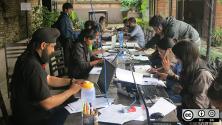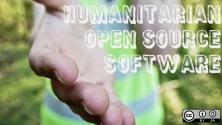There has long been a symbiotic relationship between the open source software movement and social justice champions. A recent research report, #MoreThanCode: Practitioners reimagine the landscape of technology for justice and equity, offers valuable advice to anyone interested in leveraging technology to support a cause.
Produced by the Tech for Social Justice Project and co-led by Research Action Design (RAD) and the Open Technology Institute at New America (OTI), together with their research partners, #MoreThanCode aims to use technology to make heard the voices of diverse practitioners working for social justice.
The goals of the report are to:
- Explore the current ecosystem
- Expand the understanding of practitioner demographics
- Develop and share knowledge of practitioner experiences
- Capture practitioner visions and values
- Document stories of success and failure (focusing primarily on practitioners working in the United States)
The report gathers hundreds of recommendations from a wide range of practitioners and offers targeted recommendations for specific audiences: Tech Practitioner Orgs, Other Orgs, Individual Practitioners, Funders, Educators, and Government. It also synthesizes all the responses into five key recommendations that apply to all actors in the ecosystem:
- Nothing about us without us: Adopt co-design methods and concrete community accountability mechanisms
- From silver bullets to useful tools: Change the narrative, lead with values, and recognize multiple frames and terms across the tech for social justice and equality ecosystem
- Real diversity numbers: Adopt proven strategies for increasing diversity and inclusion
- Developers, developers, developers?: Recognize the different roles and expertise in tech work and support alternative pathways to participation
- Co-ops, collectives, and networks: Support alternative models beyond startups, government offices, and incorporated non-profits
I do not live in the United States, but the report shows enough similarities with my experience in the United Kingdom to suggest that it is also valuable for practitioners outside the US.
You may be tempted to read only the executive summary, but the full report will help you better understand the reasoning behind the five key recommendations. One chapter that particularly caught my eye was Stories of Success & Failure, as too often the non-profit sector is reluctant to admit failures, even when sharing the lessons learned is valuable. If you have an interest in technology for social justice and equality, the bibliography and appendices provide links to additional research that is worth following.







1 Comment